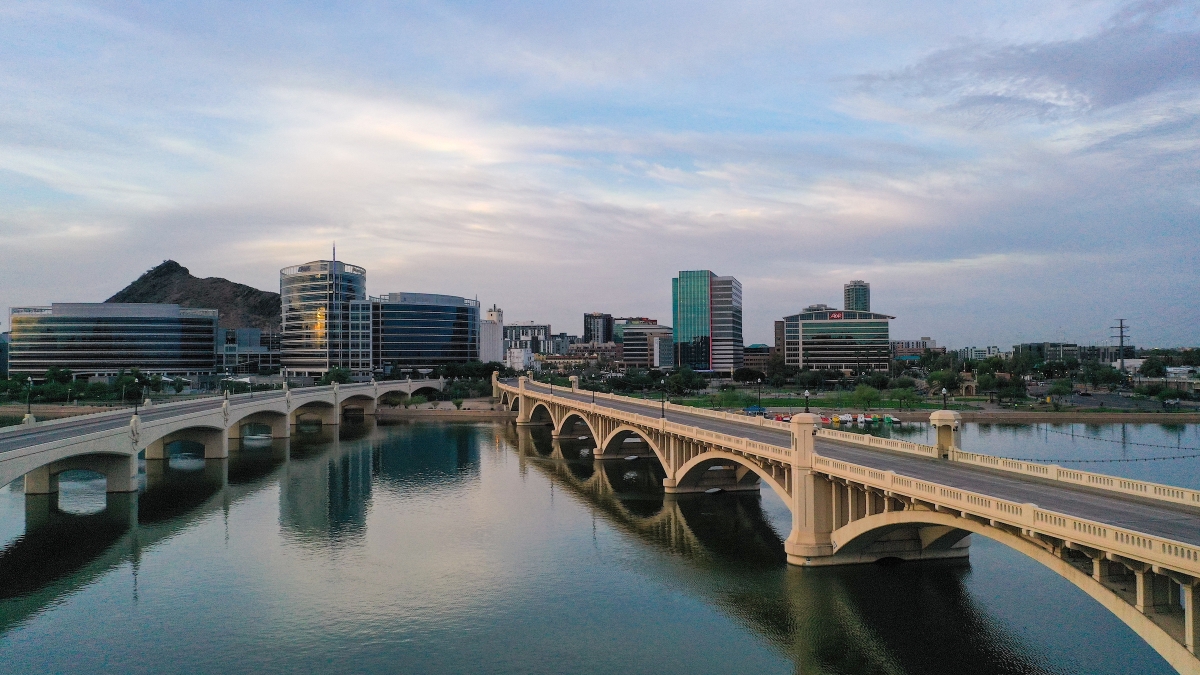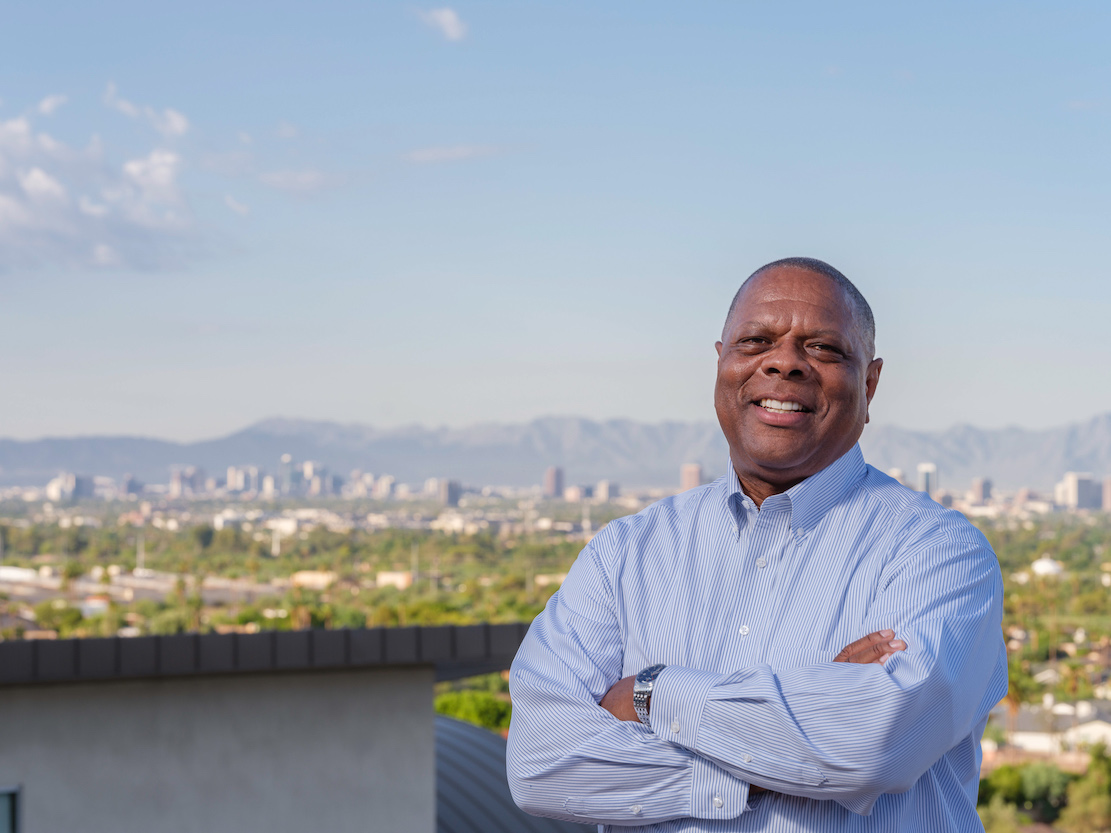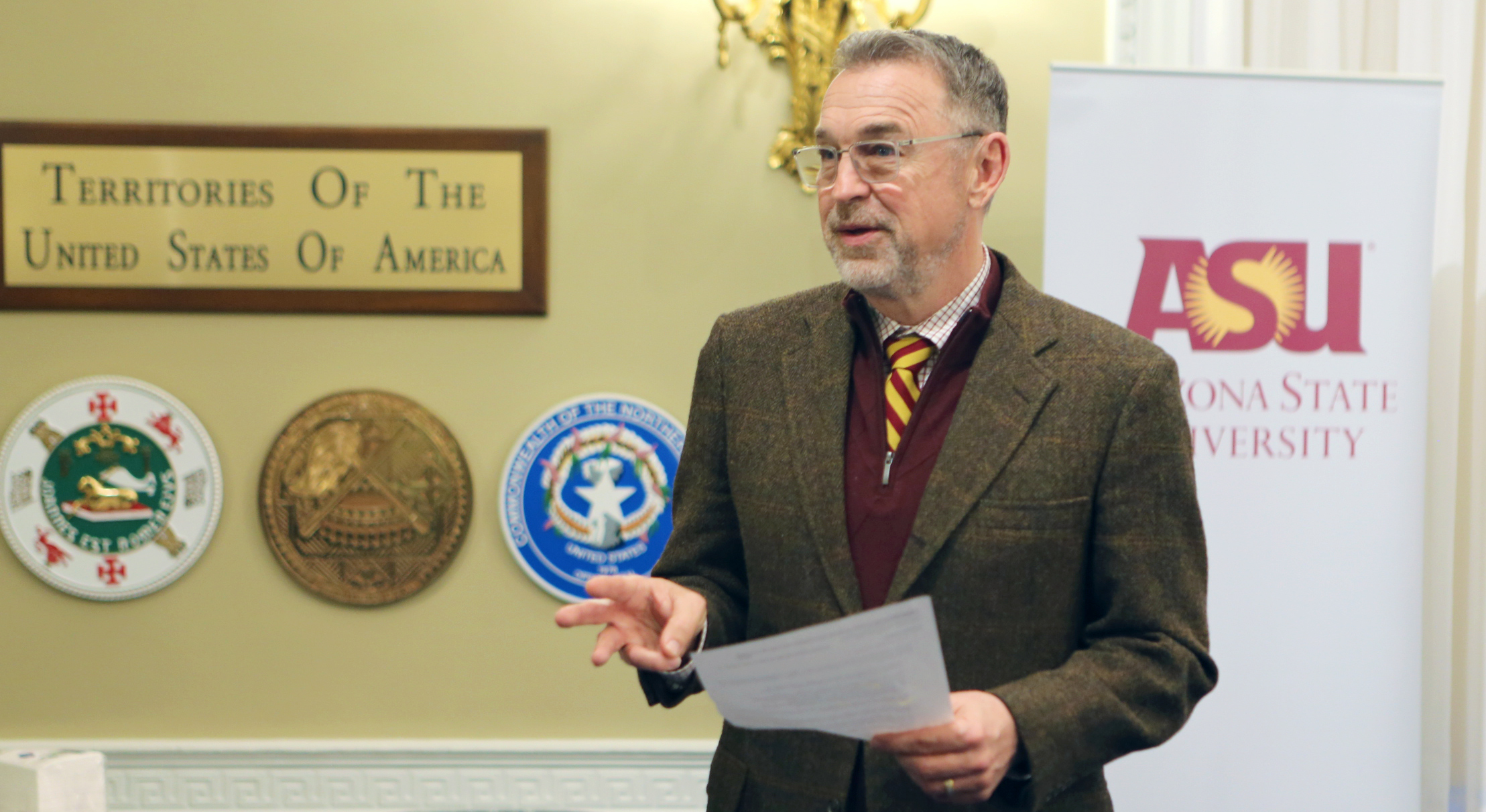With public service at the heart of Arizona State University’s charter, many Sun Devils have had successful careers in public office, and this fall, a few have been busy preparing for campaigns of their own.
ASU News caught up with some of them to find out what public service means to them. No matter their party, background or beliefs, one thing these Sun Devils have in common is their spirit to serve our communities locally, nationally and globally — and an admiration for former President John F. Kennedy’s leadership style.
Lauren Kuby
Candidate for Arizona Corporation Commission
A two-term councilmember (2014–22) and former vice mayor of Tempe, Lauren Kuby is a Senior Global Futures Scientist within ASU's Global Institute of Sustainability and Innovation. During her tenure, Kuby helped lead the city’s sustainability efforts, including creating the Tempe Sustainability Commission, which helped craft the city’s climate policy. Today, Tempe leads the state in climate action-planning.
Kuby championed the creation of the Tempe Family Justice Commission to promote access to just, safe avenues of care for victims of domestic violence, sexual assault and sex trafficking. She served on the board of the nonpartisan Arizona Municipal Water Users Association from 2015 to 2020. She holds a master’s degree in public history from ASU and a Bachelor of Arts from the University of Chicago.
For Kuby, public service and sustainability were values she learned at a very young age — her parents were volunteers for John F. Kennedy’s campaign in the small town of Holbrook, Massachusetts. Here’s what she had to say about her dedication to public service.
Question: With sustainability and climate change being such a huge issue around the world — but especially here in Arizona, with water rights and usage — how has that influenced your passion to be involved in public service?
Answer: Well, there are many factors that influenced me from the ASU side. I've mentored a lot of students and environmental and climate activists during my 25 years with the university. So that's been important. Working on these projects involving water and energy, there's such a deep nexus between water and energy in our state, and I couldn’t sit back and just watch things happen. I've always been an activist since I was a child, honestly.
Q: How so? What activities did you participate in while growing up?
A: Well, my parents volunteered with JFK’s campaign before he was president, and they often recounted the time when he held me as a baby. My parents said back then they knew I was the one who’d run for public office.
Q: How did you develop service into your career?
A: I was a youth coordinator for George McGovern in his 1972 presidential campaign in Suffolk County, Long Island, so that was also impactful. Then I went to six states for Barack Obama in 2007 and 2008. I've been very involved in politics during my career, and so running for office seemed natural to combine my love of sustainability and service.
Q: What’s the experience been like running at the state level?
A: Well, it was interesting, because for me, sustainability ultimately is about equity, and it's about all those pillars of the environment. Since I'm running for a statewide office, it is like nothing I've ever done before.
Q: What does it mean to you to be running also representing ASU?
A: I'm really proud. When I go across the state (for the campaign), I also talk about our other state universities, but ASU really is leading the world in technology and clean-energy development.
Kevin Robinson
Candidate for Phoenix City Council, District 6
Kevin Robinson is a nonprofit leader and instructor at ASU’s School of Criminology and Criminal Justice within the Watts College of Public Service and Community Solutions. Robinson began his career as a patrol officer in Phoenix's Arcadia neighborhood in 1980 and worked his way up the ranks to Phoenix's assistant police chief in 2000, a role he held for 13 years. During his tenure as the investigations division chief, Robinson was responsible for the executive oversight of two of the biggest serial murder investigations in the history of the city, bringing both to successful conclusions. For this, he was awarded the Medal of Valor and the Medal of Merit — the police department’s two highest citations for heroism and bravery.
After being in law enforcement for nearly four decades and serving on several nonprofit boards in leadership roles — including the Arizona Supreme Court Judicial Council, a policymaking body that oversees the state’s judicial system, the Arizona Police Officers Standards and Training Board and the Maricopa County Attorney’s Office Community Advisory Board — Robinson said he’s eager to represent the residents of north central Phoenix within District 6. Robinson earned a Bachelor of Arts in management as well as a Master of Public Administration from ASU. He also graduated from the Rocky Mountain Leadership Program from the University of Denver, the FBI National Academy and the FBI National Executive Institute.
Here’s why service inspires him as an educator and a community leader.
Question: After such a long career as a decorated police officer, what inspired you to run for Phoenix City Council?
Answer: Well, my desire for public service certainly comes from my career in law enforcement, which I’ve done my entire adult life. I've also volunteered on nonprofit boards — everything from the Boys & Girls Club to Valley Leadership. The opportunity presented itself for me to run for Phoenix City Council in District 6. I took a hard look at it and talked to a whole lot of folks. I realized that it would be a good fit, and it was a position where I could do a good job for residents.
Q: What brought you to police work and law enforcement?
A: I would say I was preordained to go into law enforcement. If my mother was still alive, she’d tell you that I started saying when I was around 6 or 7 years old that I would be a police officer. I also grew up watching shows like "Dragnet." For me, the interesting thing about those TV shows was seeing what groups like the FBI do day in and day out. Every day, they help people. That resonated with me, and that's what I wanted to do. I like to tell folks that I lived my dream.
Q: You've lived in a lot of places around the nation and the world as the son of an Air Force veteran. How does that inform different cultural views that you can bring to the Phoenix community?
A: It gives you a perspective and the opportunity to see other cultures, other ethnicities and other religions. You really get a chance to just kind of open your eyes and see what it is that others do or how they practice, or how they live, or what other customs may happen to be. And you quickly realize there's very little difference when you really sit back and think about it.
Q: If you had to pick one public servant that inspires you the most, who would it be?
A: I'd have to say someone like John Kennedy. He served in the military, U.S. Senate and then in the presidency. His ideas were always about collaboration. It was about shooting for the moon, literally. I think if you go into public service, you don't want to limit yourself, and that's the right attitude to have.
Q: What is the biggest thing you want to impart on students and Sun Devils about the importance of public service?
A: I don't think there's anything more rewarding than helping others. I tell my students whether they go into law enforcement, social work, forensics or anything social services-related, even something in the legal field, that one thing they have to always be mindful of is that when they are engaged in that profession, it's about helping people.
Matt Salmon
Former U.S. representative — Arizona, District 5
ASU alumnus Matt Salmon knows what it’s like to represent Arizona on a national level. From 1995 to 2001 and from 2013 until 2017, Salmon served as a U.S. representative for the state. During both of his terms, Salmon held several leadership posts, including the House Committee on Foreign Affairs, chairman of the Subcommittee on the Western Hemisphere and chairman of the Subcommittee on Asia and the Pacific, where he led numerous delegations to China.
When his term concluded at the end of the 114th Congress, Salmon joined ASU as vice president for government affairs. Prior to his U.S. congressional tenure, Salmon served as assistant majority leader and chairman of the Rules Committee for the Arizona State Senate, representing the state's 5th congressional district, which is based in Mesa and includes most of the East Valley. This year, he also ran for Arizona governor but dropped from the race this summer. Salmon graduated from ASU with a BA in English in 1981 and holds a Master of Public Administration from Brigham Young University.
Here’s why Salmon encourages a spirit of service.
Question: You've held quite a few prestigious roles for our state and country. What brought you to a career in service?
Answer: When I was working for one of the biggest telecommunication companies in the country, I was the director of public relations for Arizona. I was listening to the person that represented me in my state senate district on the radio, and I just really disagreed with some of his thoughts. I thought, "I’ve got to get to work." I ran, and I ended up beating him, and my career in public office kind of went from there.
Q: You mentioned public relations, a form of public service. Did you have the spirit of service growing up?
A: As a matter of fact, I graduated from Mesa High School, and I was the student body president for the junior class. When I went to ASU, I was really seriously thinking about going to law school and served as the president of the pre-law club. So I was always involved in a leadership role, both within my church and in my school. Taking positions on issues was always kind of second nature for me.
Q: What does it mean to be a Sun Devil and to serve in that spirit of inclusion and innovation? How did it feel to do so through such a high-profile public office?
A: It's an incredible opportunity to hold the public trust and try to advance positive policies for the people that you represent. It’s also an incredible challenge at the same time.
Q: If you could tell other Sun Devils why it's important to give back, what would you tell them?
A: No matter what you do in life, whether you're working in business, for a nonprofit, or work for the government, this country will never, ever be successful without service leaders. One of the greatest quotes that's ever been given by a politician in the modern century was by JFK when he said, “Ask not what your country can do for you, but ask what you can do for your country.” That's really something all of us should look at ourselves in the mirror and ask ourselves.
Q: What was the most rewarding thing about all of your years in service and in the many leadership roles you've held?
A: I think that the happiest times of my life are when somebody shows gratitude for our service. I had a woman come up to me — and I'll never forget this — a woman asked, “Do you remember me?” I kind of struggled to remember her. She started to cry and she said, “When you were a state senator, we had just moved here from another state, and my husband had been diagnosed with cancer. It was stage 4 and we couldn't get any help from anyone, and we reached out to you and you helped us. Because of you, my husband's alive today.”
Top photo of Tempe Town Lake by Deanna Dent/ASU
More Arts, humanities and education

ASU professor's project helps students learn complex topics
One of Arizona State University’s top professors is using her signature research project to improve how college students learn science, technology, engineering, math and medicine.Micki Chi, who is a…

Award-winning playwright shares her scriptwriting process with ASU students
Actions speak louder than words. That’s why award-winning playwright Y York is workshopping her latest play, "Becoming Awesome," with actors at Arizona State University this week. “I want…

Exceeding great expectations in downtown Mesa
Anyone visiting downtown Mesa over the past couple of years has a lot to rave about: The bevy of restaurants, unique local shops, entertainment venues and inviting spaces that beg for attention from…





